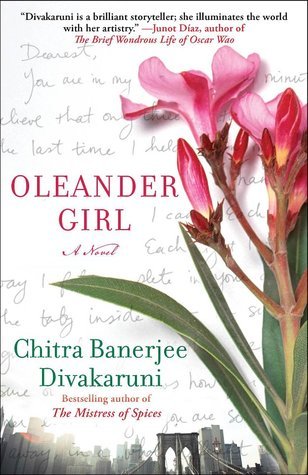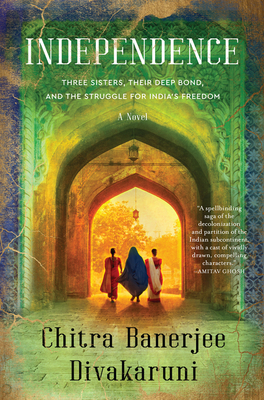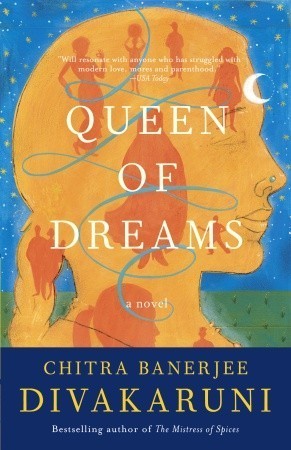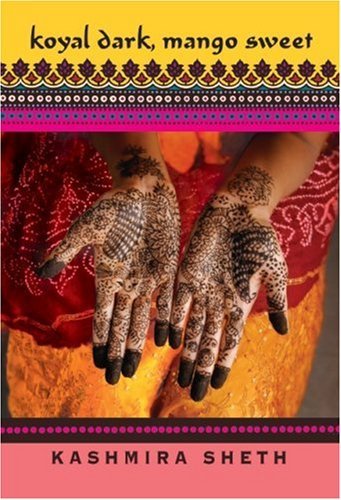
Oleander Girl
Book Description
A single letter can unravel a life. In *Oleander Girl*, a young woman named Korobi discovers her father's secret past, launching her on a harrowing journey from the vibrant streets of Kolkata to the shadowy corners of family betrayal. As the boundaries of love, loyalty, and identity blur, Korobi must navigate the perilous waters of tradition and change. Heart-pounding confrontations and long-buried truths collide in a tale where every revelation threatens to tear apart the fabric of her world. Will Korobi uncover the strength to reclaim her identity, or will the weight of her family's secrets drown her?
Quick Book Summary
"Oleander Girl" by Chitra Banerjee Divakaruni is a poignant coming-of-age novel set amid the bustling life of modern Kolkata and post-9/11 America. The story follows Korobi Roy, a sheltered young woman raised by her grandparents after her parents’ untimely deaths. On the brink of marriage to the charming Rajat, Korobi’s world unravels with the discovery of a letter revealing the secret of her true parentage. Driven by a yearning for identity and belonging, Korobi embarks on a journey to the United States, navigating cultural divides, family expectations, and deeply buried truths. As love and loyalty are tested, Korobi must make difficult choices that shape her destiny, ultimately finding strength and self-awareness through her ordeal.
Summary of Key Ideas
Table of Contents
The Quest for Identity and Belonging
Korobi Roy, a bright and idealistic young woman, has been raised in a conservative yet loving Bengali household by her grandparents after her parents’ deaths. As her engagement to the affluent Rajat is celebrated, Korobi still feels a sense of emptiness tied to her unknown heritage. A letter discovered after her grandfather’s sudden death reveals the startling truth: Korobi’s father, presumed dead, was actually an American, not Indian, as she’d always believed. The revelation of this family secret fractures Korobi’s world, pushing her to question her place within her family and community.
Family Secrets and Intergenerational Conflict
Determined to uncover her real history, Korobi defies tradition and embarks alone on a journey to America. There, in a post-9/11 landscape scarred by suspicion and fear, she faces the complexities of immigrant identity and the challenges of adjusting to a new culture. This odyssey is rife with obstacles: not only must Korobi grapple with different customs and prejudices, but she also confronts people her mother left behind and long-standing wounds that still fester. Through each confrontation and disappointment, her understanding of love, loss, and identity deepens.
Tradition versus Modernity
Back in India, Rajat and his privileged family struggle with their own secrets and the fallout from Korobi’s quest. Rajat, torn between loyalty to Korobi and obligations to his family, faces personal and financial crises that expose the fragile underpinnings of his seemingly perfect life. The Roy family is similarly destabilized, as old wounds and hidden resentments surface. Tradition, reputation, and social standing—once taken for granted—are now up for question, and each character is forced to reconsider what truly matters.
The Transformative Power of Love and Loss
Love, in all its forms, emerges as a driving force throughout the novel. Korobi’s longing for parental love transforms into self-reliance and compassion, while her romantic relationship with Rajat is tested by distance, secrets, and changing priorities. The story explores how grief and betrayal can give way to resilience and understanding. Each character learns that genuine connections and forgiveness are essential for healing and moving forward.
Immigrant Experience and Cultural Negotiation
Ultimately, "Oleander Girl" is about the power of journeys—physical, emotional, and spiritual—to transform individuals and families. Korobi’s search for her father becomes a catalyst for self-discovery and reconciliation. The narrative emphasizes that identity is not dictated solely by blood or tradition but is shaped by the choices we make, the truths we embrace, and the courage we summon in the face of adversity. Korobi’s evolution from a sheltered girl to a woman with agency and compassion encapsulates the triumph of hope over hardship.
Download This Summary
Get a free PDF of this summary instantly — no email required.





